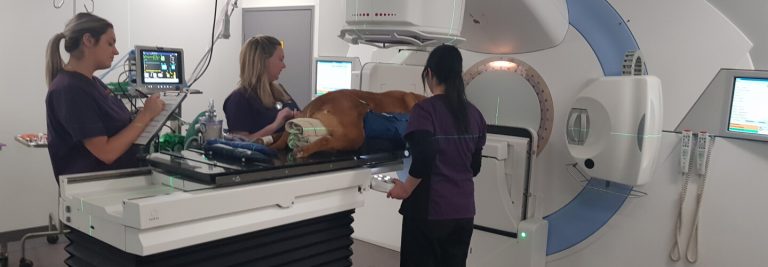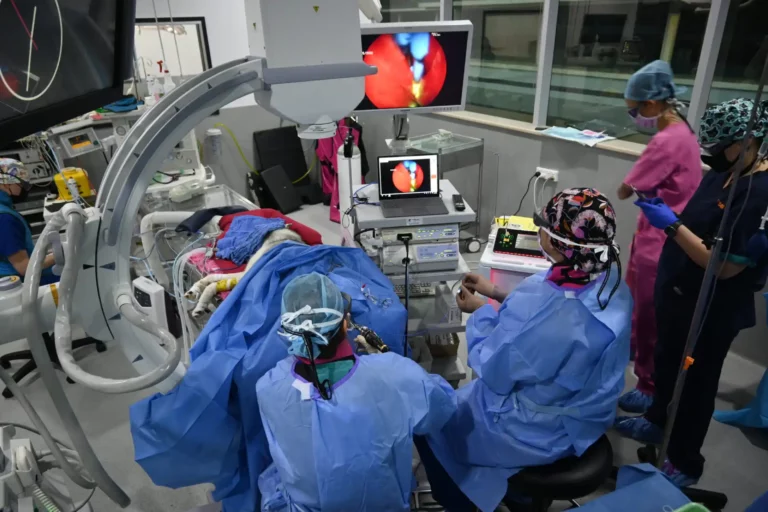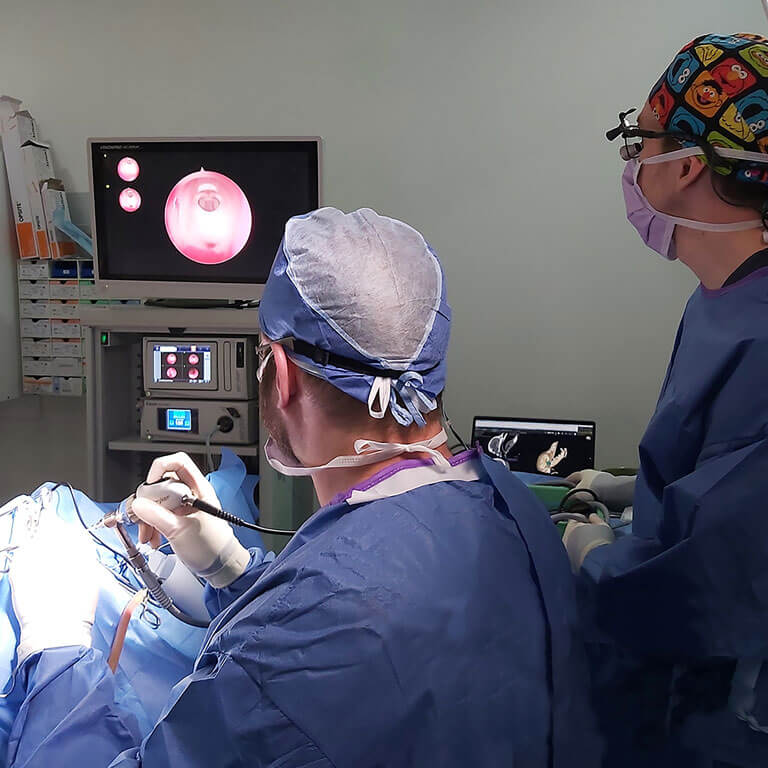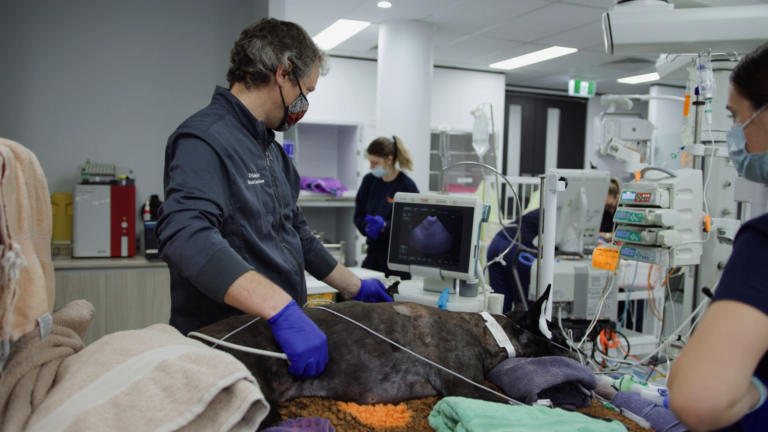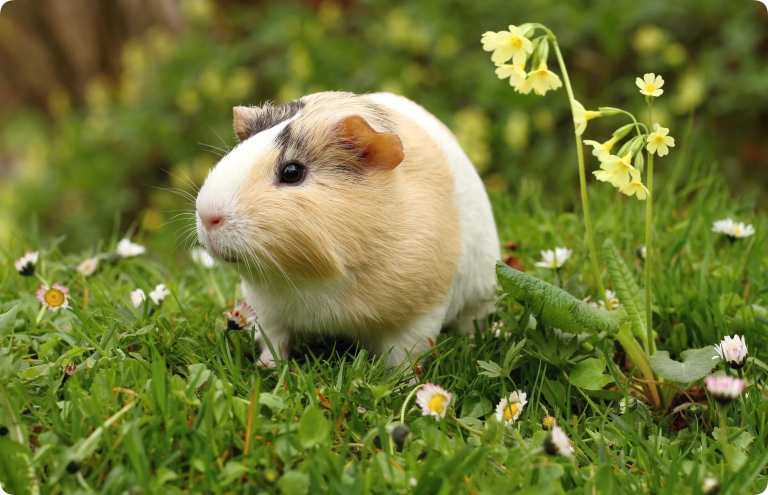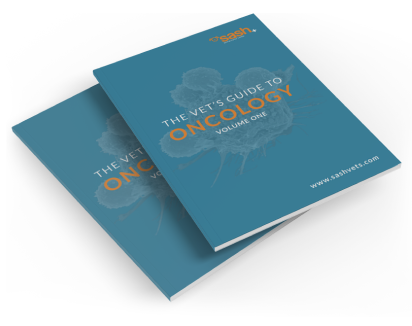Rabbits and guinea pigs make wonderful pets. It is a common misconception that they are low-maintenance pets but this is far from the truth.
They have specific dietary requirements and in order to have long and happy lives, require an appropriate environment, good nutrition and preventative health care.
Housing Your Pet
Although traditionally considered outdoor pets, rabbits and guinea pigs will often be happier and healthier kept as indoor pets with supervised outdoor access.
Risks of being housed outdoors include:
- Predator attacks (snakes, foxes, cats, dogs)
- Escaping (especially rabbits)
- Heat stress and exposure to the cold
- Fly-strike
- Exposure to fatal viruses such as myxomatosis and calicivirus
Rabbits and guinea pigs prefer a large area to roam, places to hide and protection from the weather. Rabbits will also use a litter tray and should be provided with safe litter, such as recycled paper pellets.
Nutrition
Rabbits and guinea pigs are herbivores and require a high fibre diet to remain healthy.
Their intestinal tract is designed to digest low calorie, high fibre grasses and feeding energy rich foods often leads to serious problems, including diarrhoea and gut stasis. The teeth of rabbits and guinea pigs are constantly growing and they require abrasive food to keep them in normal alignment and prevent dental abnormalities.
Rabbits and guinea pigs should be fed:
- 80% high quality hay (oaten, timothy, barley, pasture, wheaten types)
- 20% green leafy vegetables and herbs
- Fruits, pellets and other vegetables should be offered in small amounts as treats
Guinea pigs cannot make their own Vitamin C and will develop signs of scurvy if they are not provided with a diet that includes enough Vitamin C. Vegetables with a high vitamin C content include parsley, spinach and capsicum. Carrot, cucumber and oranges have relatively low amounts of vitamin C in comparison. A formulated tablet for guinea pigs is also available and should be provided if they are growing, pregnant or unwell.
Food that should not be fed rabbits and guinea pigs include:
- Lucerne hay (high levels of calcium that can cause urinary problems in adult animals)
- Muesli or grain mix
- Seeds, nuts
- Onion, garlic
- Chocolate, sugary foods
Preventative Care
Desexing
Female rabbits and guinea pigs should be speyed when they are young. Desexing of female rabbits prevents cancer of the uterus and reduces the risk of mammary tumours. Female guinea pigs very commonly develop cystic ovaries and uterine tumours that can be prevented with desexing.
Castration in male rabbits and guinea pigs eliminates the risk of testicular tumours. If performed early, many unwanted behaviours can be prevented.
Vaccination
There are no vaccines currently available for guinea pigs. Rabbits require vaccination against Rabbit Haemorrhagic Disease Virus (Calicivirus), a fatal infection that has no cure.
Young rabbits need to be immunised at 4, 8 and 12 weeks of age. Adults receiving their first vaccine should then be given a booster a month later. Vaccination every 6 months is then recommended.
Hazards In The Home
- Toxic food – avocado, onion, garlic, coffee, chocolate, rhubarb
- Toxic house plants – including azaleas, ficus species, oleander
- Poisons – rodent baits, cockroach or ant baits, snail bait
- Inhaled toxins – cigarette smoke, insect sprays
- Metal items – lead paint, galvanised wire, copper, rusty steel, coins, batteries, costume jewellery, electrical cords and wire
- Pet cats and dogs, wild rodents, snakes, foxes
